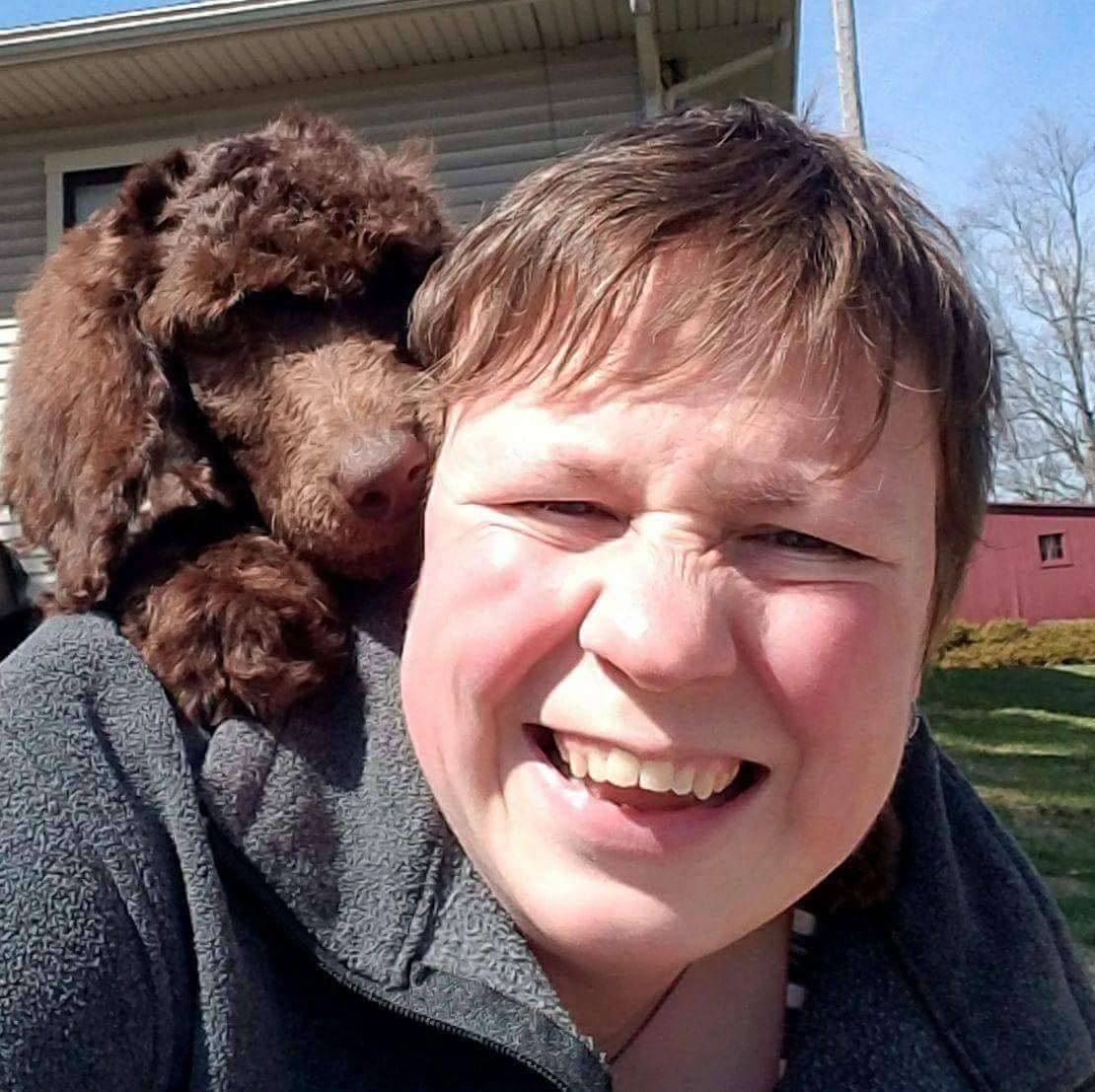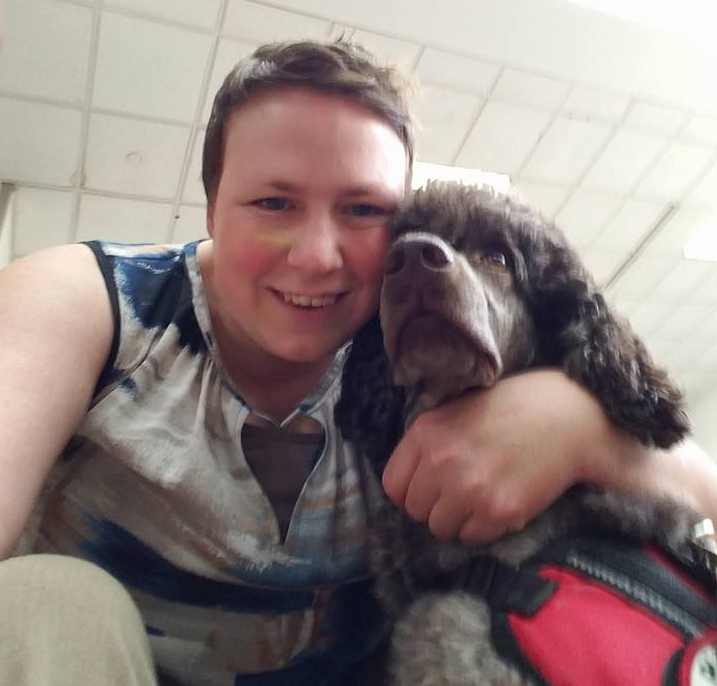Mapping
Mapping dogs are specially trained to use both scent and memory to help me navigate safely to designated landmarks, much like a compass.
Through his style, a fully trained mapping dog provides constant feedback while he is working, – valuable information I can feel through the handle of his harness. I can tell how far away we are, which direction we are headed next, and whether we are on a familiar or unfamiliar route.
Creasy is better than a GPS.
definition
pros·o·pag·no·sia /ˌpräsəpaɡˈnōZH(ē)ə/
noun
a generalized mapping condition
a neurological condition, meaning “Unknowing” that impacts one’s ability to, recognize familiar landmarks, places or faces based on an inability to grid-map the environment proficiently.
In that of an unaffected individual, the brain is constantly uploading information from the environment into a grid-like fashion. The part of the brain called the fusiform gyrus functions to perform visual information paired with memory. When functioning proficiently, this allows you to avoid bumping into walls, helps you memorize designated landmarks – such as where you are seated in a room, and helps you recognize the facial features of someone you know.
Some people with prosopagnosia cannot recognize certain facial expressions, judge a person’s age or gender, or follow a person’s gaze. They are often disoriented in public spaces, and are unable to retrace their path to re-orient themselves effectively. Others may not even recognize their own face in the mirror or in photos. Prosopagnosia can affect a person’s ability to recognize objects, such as places or cars, and faces of those they love.
Imagine this… you are in a building full of conference offices, and hallways – attending a networking workshop for work.
There’s a really big plant in the left corner of two hallways, and another to the right.
A normal brain recognizes the plant on the right from the first time they entered the hallway, traveled to the bathroom, and back to their conference room without a second thought.
My brain says, OK I see a hallway full of rooms, and 2 plants. Great. I go to the bathroom, and step back out into the hallway, and both plants look as if they were relocated when I return.
I make a guess, and turn left – and enter the open conference room – only to realize I’m sitting in the wrong chair, among a group of complete strangers.
And who’s to say these are even people I know?
It’s unlikely I would recognize them, even if they were. I’m 40 years old, and it happens just like this for me at every turn.
I’ve gotten lost in a department store for hours, unable to find the front – and can’t recall the words to ask for help.
I’ve left my vehicle parked overnight 3 blocks away and walked home because I couldn’t recall which side street it was parked. There are others like me.
With prosopagnosia, much of my mental capacity in a new location is spent trying to download the layout of the space – the hallways, stairs, entrances and exits – all seem to disappear the moment I pass them, if I’m not consciously working to store them in memory. This depletes my energy, both mental and physical – rapidly. When I tire, the grid mapping capabilities of my brain become more difficult to recharge – causing me to trip over a chair leg, bump into a wall, or become un-recoverably disoriented – that’s the moment stress sets in.
With a mapping dog by my side, I am able to free up mental energy to focus on what someone is saying in conversation, without the burden of depleting my mental energy on landmarks. I can show up with more confidence, and have increased mental energy to spend on human interaction and creativity.





